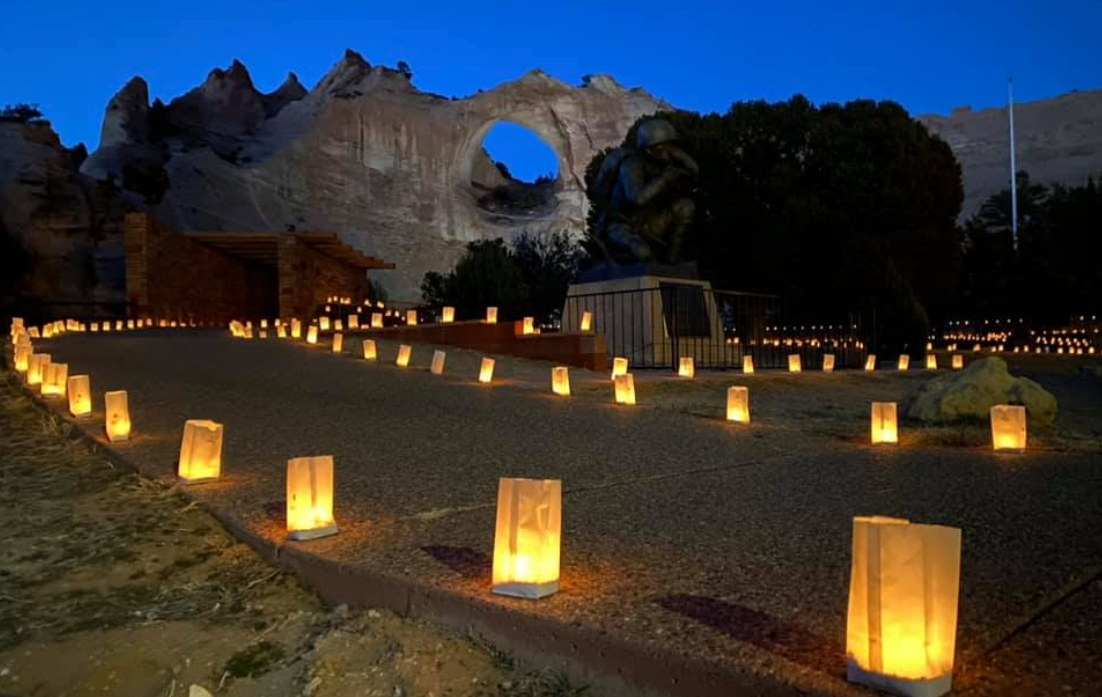
- Details
- By Native News Online Staff
WINDOW ROCK, Ariz. — The Federal Emergency Management Agency (FEMA) opened its application to the general public on Monday its Covid-19 financial assistance program. The program was funded from the Coronavirus Response and Relief Supplemental Appropriations Act of 2021 and the American Rescue Plan Act of 2021.
Navajo Nation President Jonathan Nez encourages Navajo families that incurred expenses related to Covid-19 to apply through FEMA for financial assistance
“Since the start of the Covid-19 pandemic, we have lost more than 1,262 of our people to Covid-19 on the Navajo Nation. The pandemic has brought grief and financial burden for many of our Navajo families, but it has also made us stronger and resilient,” Nez said. “We are also in the process of working with FEMA to establish a system where our Navajo people can apply in-person if they are unable to apply by phone. We will provide more information.”
“FEMA is committed to help ease the financial pressure the pandemic has inflicted on families and communities,” FEMA Region 9 Acting Administrator Tammy Littrell said. “Many lost loved ones over the past year, and we are providing applicants with as much time as they need to apply for assistance in an easy and efficient way.”
To apply, please call FEMA’s Covid-19 Funeral Assistance Line Number at 844-684-6333, Monday through Friday from 7:00 a.m. to 7:00 p.m. (MDT). For individuals who are deaf, hard of hearing, deafblind, or have speech disabilities, please call 800-462-7585.
To be eligible for funeral assistance through FEMA, you must meet these conditions:
- The death must have occurred in the United States, including the U.S. territories, and the District of Columbia.
- The death certificate must indicate the death was attributed to Covid-19.
- The applicant must be a U.S. citizen, non-citizen national, or qualified alien who incurred funeral expenses after January 20, 2020.
- There is no requirement for the deceased person to have been a U.S. citizen, non-citizen national, or qualified alien.
If you had Covid-19 funeral expenses, we encourage you to keep and gather documentation. Types of information should include:
- An official death certificate that attributes the death directly or indirectly to Covid-19 and shows that the death occurred in the United States, including the U.S. territories, and the District of Columbia.
- Funeral expenses documents (receipts, funeral home contract, etc.) that includes the applicant’s name, the deceased person’s name, the amount of funeral expenses, and the dates the funeral expenses happened.
- Proof of funds received from other sources specifically for use toward funeral costs. We are not able to duplicate benefits received from burial or funeral insurance, financial assistance received from voluntary agencies, government agencies, or other sources.
No online applications will be accepted. According to the FEMA website, it should take about 20 minutes to apply. It is important to gather all necessary information and documentation before applying for assistance. This will help FEMA to process the application in a timely manner. Once you have applied over the phone and are given an application number, you may provide supporting documentation to FEMA by uploading to your DisasterAssistance.gov account, faxing documents, or mailing the documents.
For more information about eligibility, expenses covered, and other criteria, please visit FEMA’s FAQ website at: https://www.fema.gov/disasters/coronavirus/economic/funeral-assistance/faq
For questions or to apply, please call FEMA’s Covid-19 Funeral Assistance Line Number at 844-684-6333, Monday through Friday from 7:00 a.m. to 7:00 p.m. (MDT). For individuals who are deaf, hard of hearing, deafblind, or have speech disabilities, please call 800-462-7585. More information about the Funeral Assistance program is available on FEMA’s website at: https://www.fema.gov/disasters/coronavirus/economic/funeral-assistance#apply.
More Stories Like This
Native News Weekly (August 25, 2024): D.C. BriefsNavajo Nation Mourns the Passing of Former Vice President Rex Lee Jim
Deb Haaland Earns Endorsement From Communications Workers of America Local 7076
University Soccer Standout Leads by Example
Two Native Americans Named to Democratic Congressional Campaign Committee's“Red to Blue” Program
Help us defend tribal sovereignty.
At Native News Online, our mission is rooted in telling the stories that strengthen sovereignty and uplift Indigenous voices — not just at year’s end, but every single day.
Because of your generosity last year, we were able to keep our reporters on the ground in tribal communities, at national gatherings and in the halls of Congress — covering the issues that matter most to Indian Country: sovereignty, culture, education, health and economic opportunity.
That support sustained us through a tough year in 2025. Now, as we look to the year ahead, we need your help right now to ensure warrior journalism remains strong — reporting that defends tribal sovereignty, amplifies Native truth, and holds power accountable.
 The stakes couldn't be higher. Your support keeps Native voices heard, Native stories told and Native sovereignty defended.
The stakes couldn't be higher. Your support keeps Native voices heard, Native stories told and Native sovereignty defended.
Stand with Warrior Journalism today.
Levi Rickert (Potawatomi), Editor & Publisher

